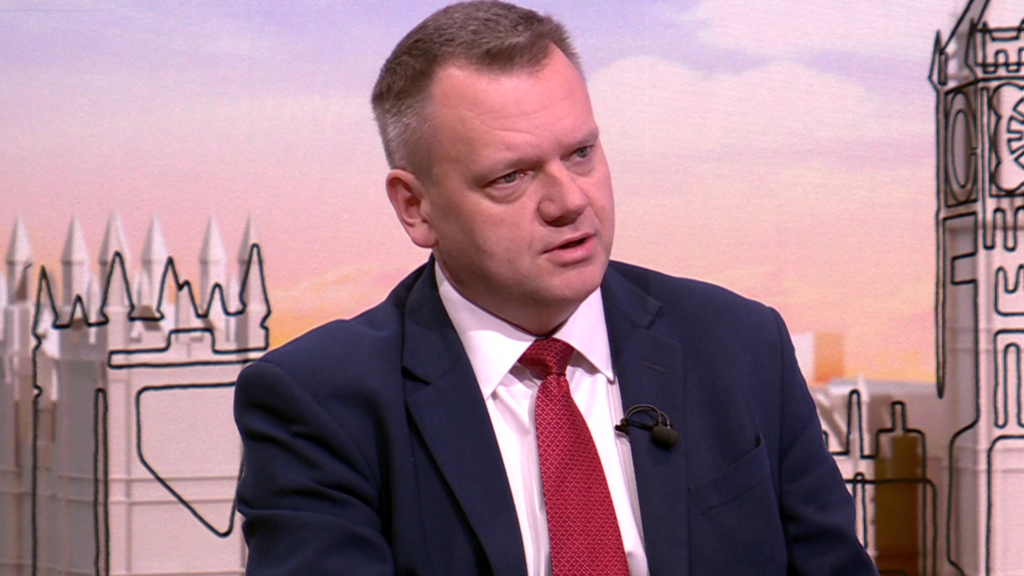A UK government minister has confirmed ongoing negotiations with the EU aiming to grant UK passport holders access to EU airport e-gates. These talks, described as being in their final stages ahead of a UK-EU summit in London, are prioritizing smoother border crossings for UK citizens.
Minister Nick Thomas-Symonds emphasized the importance of alleviating border delays, highlighting it as a “very sensible objective.” He clarified that any agreements reached would necessitate the UK making “sovereign choices” regarding alignment with common EU standards.
However, Conservative MP Alex Burghart expressed concerns, suggesting the proposed deal might lead to the UK becoming a “rule taker,” a situation he opposes.
Monday’s UK-EU summit, the first bilateral meeting since Brexit, is anticipated to be pivotal. Prime Minister Sir Keir Starmer is expected to formally announce a deal following meetings with European Commission President Ursula von der Leyen and European Council President Antonio Costa.
The anticipated agreement is expected to encompass various areas, including potentially granting the UK access to the €150 billion EU defence fund, boosting UK defence companies. Further potential agreements involve simplifying food exports and imports, establishing a youth mobility scheme, and enabling British travellers to utilize e-gates at EU airports.
Thomas-Symonds, leading the negotiations, characterized his approach as driven by “ruthless pragmatism,” focusing on economic benefits and enhanced border security. He stated that the government will evaluate contributions to EU projects on a case-by-case basis.
While expressing confidence in securing a deal on food exports and reducing related bureaucracy, Thomas-Symonds cautioned that “nothing is agreed until everything is agreed.” He cited instances of significant delays and spoilage of fresh produce due to excessive red tape as a key driver for reform.
Burghart reiterated his concerns about the potential for “dynamic alignment,” where the UK adopts equivalent EU standards without direct participation in decision-making. He views this as an unacceptable compromise of British sovereignty.
Regarding a potential youth mobility scheme, Thomas-Symonds emphasized the importance of a “smart and controlled scheme,” clearly differentiating it from free movement.
While specifics remain undisclosed regarding potential caps or visa durations, the minister stressed the importance of maintaining control over immigration levels, aligning with government pledges to reduce net migration.
Liberal Democrat MP Calum Miller expressed concern that the government isn’t fully capitalizing on the opportunity to further improve relations with the EU, advocating for a more ambitious approach, including exploring a customs union.
Miller highlighted the potential economic benefits of reducing red tape, estimating it could be worth £25 billion, with further gains possible through a customs union. Conversely, Reform UK leader Nigel Farage voiced strong opposition to key aspects of the potential deal, suggesting it would represent a betrayal of Brexit principles.
Farage specifically criticized the potential youth mobility scheme and any extension of EU fishing rights in British waters. He also expressed concerns about potential implications for British military involvement under an EU flag.
Sign up for our Politics Essential newsletter for in-depth political analysis and updates.
The potential for UK travellers to bypass lengthy queues and utilize e-gates at European airports remains uncertain.
Negotiations are ongoing regarding a youth visa scheme and the UK’s financial contributions.
Food producers anticipate reduced paperwork for exporting goods under the new UK-EU deal.
The comprehensive deal addresses defence, trade, fishing, and a potential youth scheme, marking a significant post-Brexit development.
While acknowledging concerns, Eluned Morgan suggested the deal will improve export capabilities.

